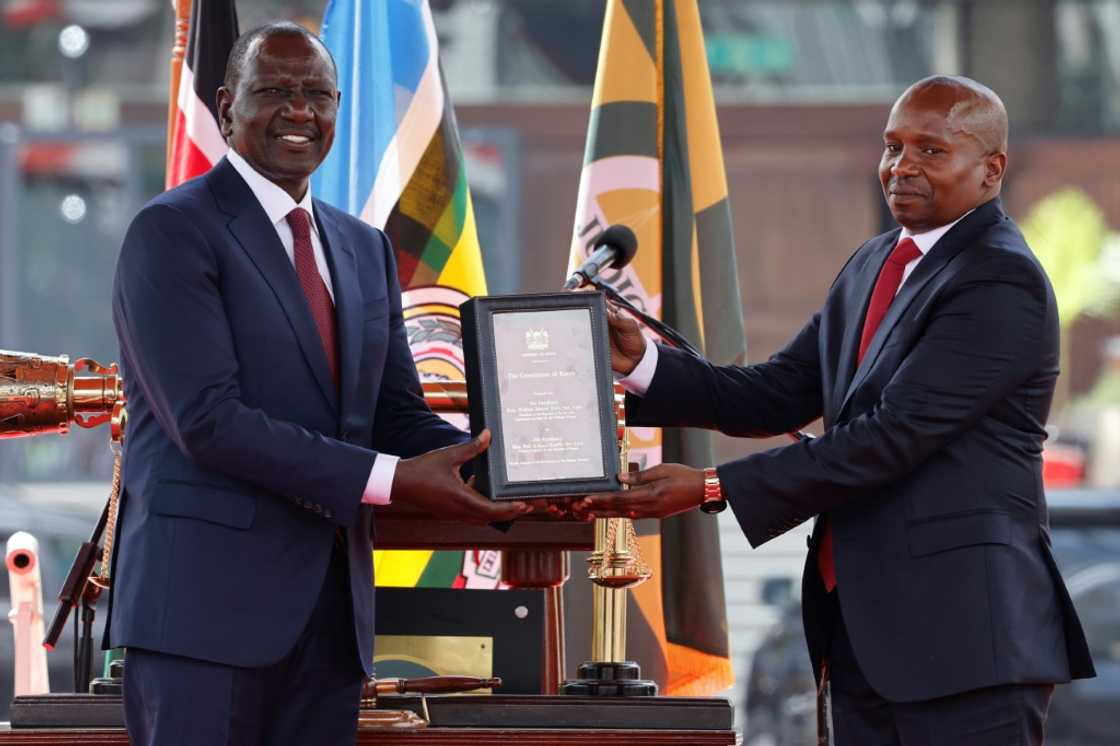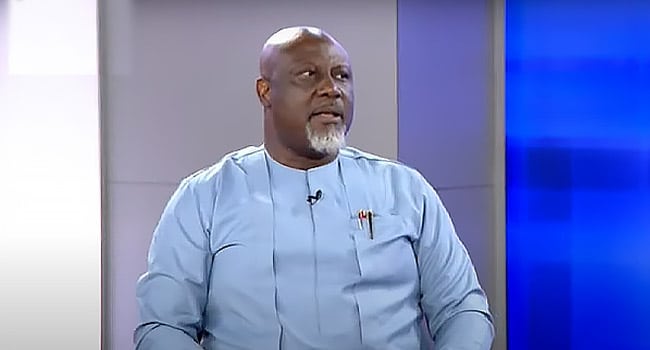
Source: AFP
Kenya plans to reintroduce some of the tax hikes that sparked deadly protests earlier this year, the government announced Friday, while a new deputy president was sworn in after weeks of high political drama.
President William Ruto scrapped an unpopular finance bill in June after the protests.
Rights groups accused police of a brutal and illegal crackdown that led to more than 60 people being killed, with dozens more arbitrarily arrested.
But Kenya's government desperately needs to boost revenues as it struggles under around $80 billion of debt.
It has prepared three new tax and finance bills, to be introduced soon in parliament, and sent out an explainer to the media on Friday.
Several proposals from the scrapped finance bill are being reintroduced, including VAT hikes and new taxes on the digital sector.
The latter means freelancers working in food delivery and for ride-hailing apps -- which have become vital sources of income in recent years -- will have to pay income tax for the first time.
Such tax hikes are likely to cause upset in a country where a third of the population lives below the poverty line.
In a speech, Ruto said Kenya's development was "overdue by decades" because it had failed to boost tax revenues.
"As a result, we lack the resources needed for development," he said, highlighting the 850,000 young people who enter the labour market each year and struggle to find jobs.
He did not address the new bills specifically but said the government aimed to raise tax revenues from 14 percent of GDP to 22 percent within a decade and increase compliance from 70 percent to 90 percent through tech-based automation.
"Our tax measures must be fair, and every eligible entity must pay," he said.
New deputy
Meanwhile, a new deputy president Abraham Kithure Kindiki, formerly the interior minister, was sworn into office on Friday.
It followed weeks of drama around the impeachment of Ruto's previous deputy, Rigathi Gachagua, who was accused of ethnically divisive politics.
Gachagua, a powerful businessman, helped Ruto win a closely fought election in 2022 by rallying support from the crucial Mount Kenya region, particularly members of the Kikuyu tribe.
But he fell out spectacularly with Ruto, not least by showing support for this year's protests.
Kindiki, a 52-year-old academic and lawyer, also hails from the vote-rich Mount Kenya region.
He defended his boss at the International Criminal Court when Ruto was accused of crimes against humanity over 2007-08 post-election violence.
In his acceptance speech, Kindiki described himself as the "most unlikely person" to take over the deputy presidency, having come from humble village origins.
"Kenya has made it possible for anyone to become anything in this country. I don't take it for granted," he said.
Kindiki was criticised for backing the police when they were accused of excessive force during the protests.
"Welcome to the team that is going to transform Kenya into a great nation," Ruto told him at the ceremony, listing plans to focus on improving higher education, healthcare, agriculture, housing and more.
PAY ATTENTION: Сheck out news that is picked exactly for YOU ➡️ find the “Recommended for you” block on the home page and enjoy!
Source: AFP
















 English (US) ·
English (US) ·